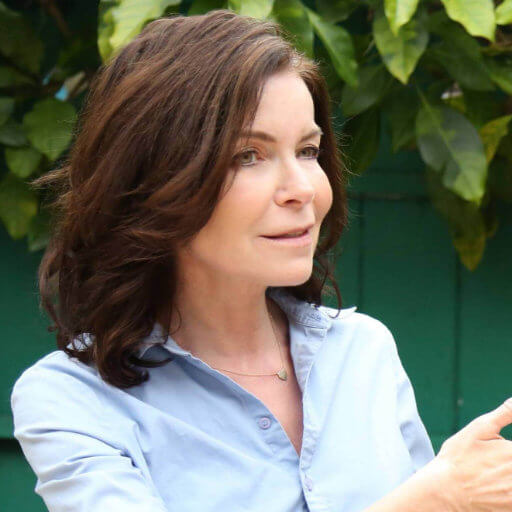For years, the concept of leaning in has been drilled into women everywhere. We’ve been told to pursue our ambitions, to change the conversation from what we can’t do to what we can do. But what about what we don’t want to do?
Opting out, the decision to stop doing whatever it is that feels self-defeating, is that moment when we realize a relationship, friendship, job, or quest for the perfect mate either is not working, is more effort than it’s worth, or has outlived its purpose. It’s a choice to go against ingrained social norms, to opt out of what’s expected of you.
Maybe it’s a career change, or a decision to leave your career to become a stay-at-home mom. Maybe it’s choosing not to marry, not to have children or not to settle down. Whatever it is, it’s a conscious choice that, if done for the right reason and in the right frame of mind, is one of the most significant moves you can make to improve your life.
Leaning in has become a huge part of our culture, so much so that some women feel ashamed to opt out. How do we overcome that?
Opting out for women can be a lonely trek. Some of us feel shame for just wanting to settle down, or not being grateful for that five percent raise. We become afraid, even if there is no cause, and end up refraining from making a statement in fear of criticism. We fear what others will think of us. Opting out scares most women, because, when it comes down to the wire, they’re afraid of missing out.
But when you ignore the signs to walk up and over, when you allow shame—a deeply distorting emotion—to scare you, it is a blow to what you deserve. Remember, detangling yourself from a place or person might mean loss for a while, but wild women find their way. You are that woman.
Why do women define themselves as being worthy in relation to marriage? How do we break that cycle?
The value of a woman in society is always in question. Remember, as history has taught us, this is first and foremost a male-centric planet. A woman’s worth should have nothing to do with whether she is married or not. We write our own vows, choose our mate, find a suitable sperm donor and draft our prenuptial. Yet we’re still singled out if we’re unwed at 35. But the good news is that we are evolving as a gender, despite the discrimination against women in our society today.
How does divorce weigh into opting out?
There are three voices in any relationship: your voice, his voice, and the relationship’s voice. And if you ask either partner when their relationship ended, they’ll usually say two or three years earlier. But that is okay. You stayed. You tried. That is what relationships are, they are ups and downs and require effort to keep it together. But when the trying becomes tried, you just know. You may never be “ready” and waiting to be ready can be sabotage, but you are ready when you go.
In marriage, the decision to opt out doesn’t usually come easy. Divorce is painful, because we know that loss comes with a price. If a relationship is dead, it cannot grow. With that knowledge comes transformation. And then along comes somebody new, and we find ourselves saying: If only I had chosen you.
Is opting out always a conscious decision?
In a healthy person, opting out is always a conscious decision—especially for someone who has a clear idea of who they are. People who have little or no boundaries are always working on how to opt out because they take on things way beyond their scope.
You know you’re unhappy when you find yourself telling a friend the things you wanted to say to this or that person but didn’t have the courage to. This is a clear indicator that you didn’t stand up for yourself. If you find yourself talking to people about things that make you angry, it is because you have pent up dialogue, and this will, in turn, express itself as anger.
When you become conscious, here’s the payoff: You want to engage. You are exactly where you want to be. You really do have a choice. If you want to opt out, make it a conscious decision.
How do we know when it’s ok to opt out of assumed human desires, like marriage and procreation? How to we protect ourselves from the judgment, fear, anxiety, shame, and obsession that comes with opting out?
If anybody gets tired of hearing about the progress of women’s rights today, tell them to stop and take a look: Women all over the world are still victims of violence and abuse. Whether we’ve experienced emotional conditioning or not, there is still a reflex rooted deep in our DNA. Certain fears have been implanted by centuries of systematic abuse, not dissimilar to a corrupt code of neurons that are meshed into our software.
If you enmesh yourself too deeply with the concerns of others, you risk devaluing your own obligations to self—to what’s actually important to you. Confronting and going beyond the thing that you find hardest to face will give you the endurance to tackle tribulations until finally you say out loud: “I don’t care what anybody says, I’m opting out for myself.”
Opting out is never easy. But this is life. You are capable of stepping into something greater. Women before you did, and in doing this, you too will be part of the legacy of allowing future generations of women take charge of their lives and be free to contour the existence that they desire and deserve.
What’s the difference between opting out of something and simply delaying the process?
Opting out is simply making a healthy exit for something greater. It can be a drastic change or something minor—like discarding a simple annoyance. In any case, you’re in pursuit of something. Opting out is often confused with bailing out, which happens when hasty decisions are made, and often result in deep regret.
Our relationships and careers are a lot more complex than we like to admit. We won’t pretend that one tiny decision will determine our entire future, but it could change the outcome drastically.
When facing an internal challenge, it’s best to set aside all distractions and make a decision to wait, just for a while, and sort out the smoking guns. Healthy delays give us the time to wait for the right answer or wait for something better that is more deserving of our energy. Taking a delay without distractions will ultimately return the right decision.





